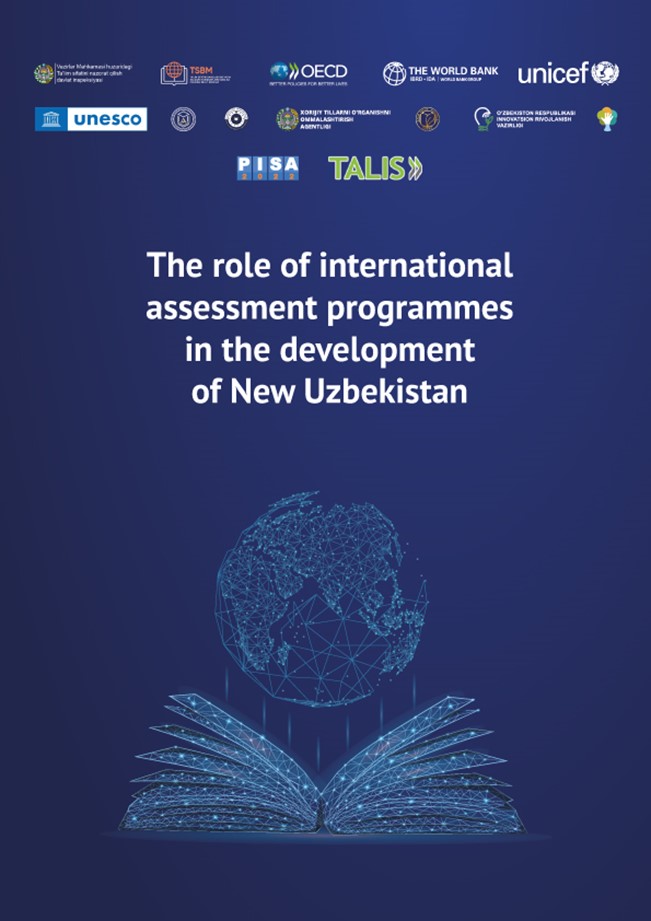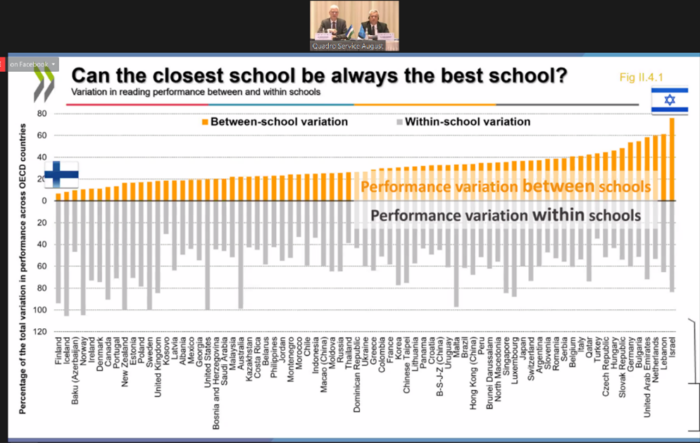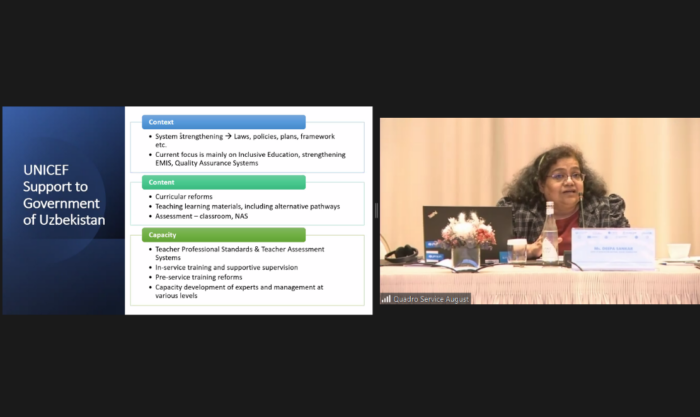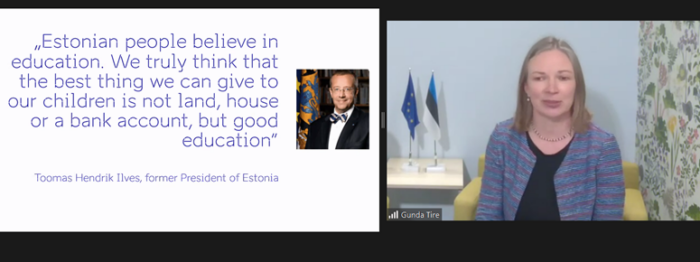
PISA 2022 LAUNCH EVENT in Tashkent, Uzbekistan, on 11-12 April 2022
The role of international assessment programmes in the development of New Uzbekistan
In September 2021, Uzbekistan celebrated the 30th anniversary of its independence. If there is one Central Asian country that is determined to implement far-sighted reforms and achieve sustainable development goals, then it is Uzbekistan. The progress towards a free civil society with a strong focus on education is remarkable. In this context, Uzbekistan now participates in OECD/PISA (Programme for International Student Assessment), IEA/PIRLS (Progress in Reading Literacy Survey) and IEA/TIMSS (Trends in Mathematics and Science Study) with a view to collecting actionable data that will inform their education policy.
On April 21, 2022, Uzbekistan will embark on its first PISA main data collection and, for this important milestone, the State Inspectorate for Supervision of Quality in Education organised and hosted a large international event in the form of a conference. Mr Ulugbek Tashkenbaev, the Head of the State Inspectorate for Supervision of Quality in Education, chaired this informative exchange. Presentations were in Uzbek, in English and in Russian, and simultaneous interpretation was provided.
Mr Ulugbek Tashkenbaev officially opened the conference, and opening remarks were delivered by His Excellency Bakhtiyor Saidov, the Minister of Public Education, and by representatives of UNICEF, the EU Delegation, the World Bank and UNESCO. The floor was then given to Andreas Schleicher, Director for Education and Skills at the OECD, often referred to as the World’s Headmaster.

Dr Schleicher’s keynote speech showed that rankings in PISA are deceptive and that the important information, the data that will help Uzbekistan make informed decisions lie elsewhere. For example, there are indications that class size matters less than the quality of the teachers. There are also examples of countries that successfully reduced variation across schools (see Figure 1) as well as the impact of socioeconomic status on student performance.
The keynote was followed by very interesting contributions from eminent experts in the field, such as Mr. Janssen Texeira, Senior Education Specialist at the World Bank’s Education Practice, who examined the prospects and possible outcomes of Uzbekistan’s participation in international assessments, or Ms Deepa Sankar (see Figure 2), the Chief of the Education sector at UNICEF, who outlined the scope and potential of assessment reforms for Uzbekistan.

We also had a detailed account of the work achieved in preparing the participation in PISA, PIRLS, TIMSS and other assessments, by Mr Abduvali Ismailov, the Director of the National Center for International Studies on the Assessments of Quality in Education. Mr Abduvali Ismailov is also the National Project Manager of Uzbekistan for PISA, so we had the privilege to work with him on perfecting the Uzbek national versions of the PISA data collection instruments.
In this context, Steve Dept, founding partner of cApStAn Linguistic Quality Control, was invited to share views on both the complexity and the proven feasibility of achieving a high degree of comparability between the language versions of the PISA instruments. cApStAn has contributed to capacity-building of National Centers in test translation and adaptation since the inception of PISA, and this was a perfect opportunity to acknowledge the incredible work performed by the National Assessment Center of Uzbekistan in this respect. The conclusions from Steve’s presentation are shown below (see Figure 3).

Mr Mark Zelman (USA) and Mr Risto Hotulainen (Finland) explained the roadmap to improve the system of comprehensive national assessment of students achievement with a lively, colourful presentation. Ms Gunda Tire, PISA National Project Manager for Estonia and Head of International Assessments, Education and Youth Board of Estonia, shared Estonia’s experience (and success story) in international assessments and in innovating in educational practices (see Figure 4).

The work goes on! Not only the Conference, which will continue in online session mode on April 12, but the long road ahead to further improve the efficiency of the Uzbek education and develop the human capital of New Uzbekistan. We wish Uzbekistan a successful PISA 2022 main data collection!